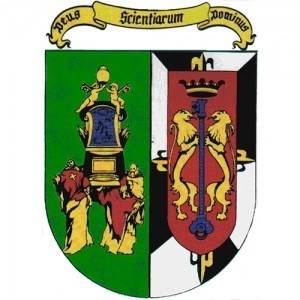Photos of university
The MSc in Public Management and Social Development at Copenhagen Business School is a comprehensive and innovative master's program designed to equip students with advanced knowledge and practical skills necessary for managing public sector organizations and fostering social development. This programme focuses on the interconnected challenges faced by modern societies, including governance, policy implementation, social innovation, and sustainable development. Students will explore various theoretical frameworks and analytical tools to understand complex societal issues and develop effective strategies for public administration and social change.
Throughout the program, students engage with cutting-edge research and case studies that highlight best practices from around the world. The curriculum offers a multidisciplinary approach, combining insights from public administration, political science, economics, and social sciences. Courses cover topics such as public policy analysis, organizational management in the public sector, governance and leadership, social innovation, and international development. Emphasis is placed on the development of critical thinking, problem-solving, and communication skills essential for leadership roles in both local and global contexts.
The program encourages active learning through group projects, internships, and collaboration with public organizations and NGOs, providing students with practical experience and professional networks. Additionally, students have opportunities to specialize in areas such as social entrepreneurship, international development, or public sector innovation, aligning their studies with their career aspirations. The MSc in Public Management and Social Development prepares graduates for careers in government agencies, international organizations, non-governmental organizations, and consulting firms, where they can contribute to effective public administration and social progress.
Graduates will be equipped not only with theoretical understanding but also with practical tools to analyze, design, and implement policies aimed at social betterment. The program’s international orientation ensures students are prepared to operate effectively in diverse cultural and institutional environments, making them valuable contributors to global public management initiatives. Overall, this master's programme offers an academically rigorous and practically relevant education, fostering the development of future leaders committed to improving societal well-being through innovative public management and social development strategies.
The Master’s Degree in Public Management and Social Development at Copenhagen Business School offers a comprehensive and multidisciplinary curriculum designed to equip students with the skills and knowledge necessary to address complex social issues and manage public sector organizations effectively. The programme focuses on the intersection of public administration, social policy, and organizational management, preparing graduates to work in diverse settings such as government agencies, non-governmental organizations, international institutions, and the private sector engaged in social development initiatives.
Throughout the programme, students are introduced to theories and practices related to public sector management, governance, and policy analysis. Key topics include public administration reform, e-governance, public financial management, and stakeholder engagement. Emphasis is placed on developing analytical skills, strategic thinking, and ethical considerations when designing and implementing policies that aim to promote social well-being. The curriculum also incorporates innovative approaches to social development, emphasizing sustainability, inclusivity, and participatory decision-making processes.
A distinctive feature of the programme is its focus on global and local contexts, enabling students to understand and compare different governance systems and social policies across various regions. Courses are often supplemented with case studies, practical projects, and internships that provide real-world experience and foster partnerships with public institutions and NGOs. Students gain critical insights into social issues such as inequality, social exclusion, urban development, and human rights, alongside skills in project management and organisational leadership.
The programme encourages an interdisciplinary approach, integrating perspectives from political science, economics, sociology, and management. This broad foundation allows graduates to develop holistic solutions to social challenges, taking into consideration economic, political, and cultural factors. Furthermore, students are trained to critically assess policies and management strategies, ensuring their capacity to contribute positively to social development agendas.
In addition to coursework, the programme offers opportunities for academic and professional networking through seminars, workshops, and conferences featuring prominent scholars and practitioners from around the world. The international environment fosters a diverse learning community where students can exchange ideas and collaborate on projects with peers from different backgrounds.
Graduates of the Master’s in Public Management and Social Development are well-positioned for careers in public administration, policy advisory roles, development consultancy, and leadership positions within community organizations. The programme not only provides theoretical foundations but also emphasizes practical skills and strategic insights necessary for effective management and social innovation in the public sector. With its focus on sustainable development and inclusive governance, the programme aims to prepare future leaders capable of fostering meaningful social change in a rapidly evolving global landscape.
The Master of Public Management and Social Development programme at Copenhagen Business School requires applicants to hold a relevant bachelor's degree or equivalent qualification from an accredited institution. Prospective students must demonstrate a solid academic background in areas related to public administration, social sciences, or related disciplines. The application process typically involves submitting academic transcripts, a curriculum vitae, motivation letter, and letters of recommendation. Additionally, proficiency in English is mandatory, with candidates required to provide evidence through standardized tests such as IELTS or TOEFL unless they have completed education in English-medium institutions. The programme emphasizes interdisciplinary knowledge, critical thinking, and practical skills necessary for managing public sector and social development projects. Students will engage in coursework that combines theoretical frameworks with practical applications, including case studies, group projects, and internships. The curriculum covers core topics such as governance, policy analysis, social change, organizational dynamics, and development strategies. Participation in seminars, workshops, and research projects is integral to the learning experience. To complete the degree, students are usually required to submit a master’s thesis that demonstrates their ability to conduct independent research on relevant issues. The programme fosters competencies in leadership, communication, and strategic planning tailored to the needs of public organizations and social development agencies. Students are encouraged to participate actively in university activities and develop a professional network through interactions with faculty, practitioners, and fellow students. The length of the programme typically spans two years of full-time study. Admission decisions are based on academic credentials, relevant work experience, motivation, and potential contribution to the field of public management and social development.
The Financing of the public management and social development program at Copenhagen Business School (CBS) primarily involves a combination of tuition fees, government funding, scholarships, and potentially student loans. Tuition fees for international students are generally set annually and are subject to change, reflecting CBS's commitment to maintaining high-quality education while balancing operational costs. Domestic students, typically Danish citizens or residents, benefit from public funding through the Danish education system, which significantly subsidizes the cost of higher education, making it more accessible and affordable. This public support is part of Denmark’s broader policy to promote higher education and lifelong learning.
For international students who do not receive Danish government support, financing options include university-specific scholarships, which are awarded based on academic merit, financial need, or specific criteria set by donors or institutional policies. CBS also encourages students to seek external funding sources, such as the Danish State Education Fund (SU), which provides loans and grants to eligible students, assisting them in covering living expenses during their studies.
Many students finance their studies through a combination of personal savings, family support, and loans, recognizing the importance of investing in education for future career opportunities. CBS provides detailed guidance about the application process for financial aid, including eligibility criteria, application deadlines, and required documentation. Additionally, some students may work part-time during their studies to supplement their income, although the program’s workload is designed to be manageable alongside employment.
In the context of Denmark and CBS, there is a strong emphasis on ensuring that financing options remain accessible to a diverse student body, promoting inclusion and equal opportunities in higher education. The university may also partner with public and private entities to offer internship programs with stipends or other financial incentives, which can further contribute to students' overall financing strategies.
Overall, the financing structure for this program reflects Norway’s broader goals of fostering an inclusive, well-funded, and sustainable higher education environment, balancing institutional funding, government grants, and personal investments to ensure student success and program viability.
The MSc in Public Management and Social Development at Copenhagen Business School (CBS) is a comprehensive master’s program designed to equip students with advanced knowledge and skills needed to address complex public sector challenges and promote sustainable social development. The program focuses on the intersection of public administration, policy analysis, governance, and social innovation, preparing graduates for leadership roles in governmental agencies, NGOs, international organizations, and other institutions involved in public service and social development initiatives.
Throughout the program, students engage with key theoretical frameworks and practical approaches to managing public resources, designing effective policies, and fostering social well-being. The curriculum emphasizes critical analysis of current issues such as social equity, inclusion, economic development, and governance reform. Courses cover topics like public management, social policy, organizational theory, leadership, and ethical considerations in public administration. Special emphasis is placed on understanding the complexities of social and political contexts in which public organizations operate, with a focus on international and cross-cultural perspectives.
Students gain practical experience through case studies, group projects, and internships, enabling them to apply their learning in real-world settings. The program encourages interdisciplinary collaboration and promotes innovative solutions to societal challenges. Moreover, students are trained to utilize quantitative and qualitative research methods, data analysis, and evaluation techniques, ensuring they are capable of assessing policy impacts and contributing to evidence-based decision-making.
Furthermore, the program benefits from CBS’s connections with public and private sector partners, providing networking opportunities and exposure to current practices in public management and development. Graduates are well-prepared for careers in policy analysis, program management, social development consultancy, international development organizations, and research institutions. The MSc in Public Management and Social Development ultimately aims to foster responsible leadership committed to advancing social justice, sustainable development, and effective governance on both a national and international level.









